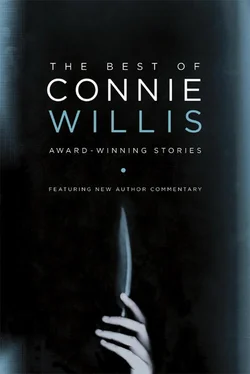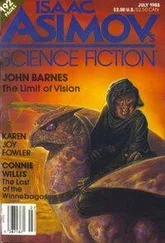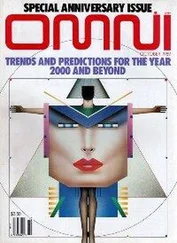And then, when I was thirteen,
I read Have Space Suit, Will Travel ,
and it was all over.
How it happened was this way.
I was thirteen
and shelving books in the junior high library,
and I picked up a yellow book—I can still see it—
with a guy in a space suit on the cover.
The title was Have Space Suit, Will Travel ,
and I opened it and read:
“You see, I had this space suit .
How it happened was this way:
‘Dad,’ I said, ‘I want to go to the Moon.’
‘Certainly,’ he answered and looked back at his book. It was Jerome
K. Jerome’s Three Men in a Boat, which he must know by heart .
I said, ‘Dad, please! I’m serious!’”
There’s a scene at the end of Star Wars .
The Death Star has cleared the planet
and Luke Skywalker is going in for one last run.
Princess Leia is back at command headquarters,
listening intently to the battle.
All the other fighter pilots are dead or out of action
and Darth Vader has Luke clearly in his sights.
And all of a sudden,
Han Solo comes zooming in from left field
to blast Darth Vader
and says,
“Yahoo! You’re all clear, kid. Now let’s blow this thing.”
Now, when he does this,
Princess Leia doesn’t look up from the battle map
or even change her expression,
but my daughter, who was eight years old at the time,
leaned over to me and said, “Oh, she’s hooked, Mother.”
And when I opened that yellow book
and read those first lines of Have Space Suit, Will Travel ,
I was hooked.
I raced through Have Space Suit and then—
after a brief detour to read Three Men in a Boat—
I read Citizen of the Galaxy
and Time for the Stars
and The Star Beast
and Double Star
and Tunnel in the Sky
and The Door into Summer
and everything else Heinlein had ever written.
And then Asimov
and Clarke
and The Martian Chronicles
and A Canticle for Leibowitz
and then, oh my God,
I discovered the Year’s Best short story collections
and the world exploded into dazzling possibilities.
Here, side by side, were the most astonishing short stories
and novelettes
and novellas
and poems
“Vintage Season”
and “Lot”
and “The Man Who Lost the Sea”
and “I Have No Mouth and I Must Scream”
and “Flowers for Algernon”
and “Houston, Houston, Do You Read?”
stories by Kit Reed
and William Tenn
and James Blish
and Fredric Brown
and Zenna Henderson
and Philip K. Dick,
all in one book
nightmarish futures
and high-tech futures
marvelous Shangri-Las
and strange distant planets
aliens
and time travel
and robots
and unicorns
and monsters
tragedies
and adventures
and fantasies
and romances
and comedies
and horrors
“Surface Tension”
“Evening Primrose”
“Day Million”
“Continued on Next Rock”
“When We Went to See the End of the World”
“I Hope I Shall Arrive Soon”
and “One Ordinary Day, with Peanuts,”
stories that in only a few pages,
a few thousand words,
could turn reality upside down and inside out
and make you look at the world,
at the universe,
a whole new way,
could make you laugh,
make you think,
break your heart.
I was beyond hooked.
I was stunned.
I was speechless with wonder,
like Kip and Peewee looking at their own Milky Way from the Magellanic Clouds,
like the two hobos in Ray Bradbury’s “A Miracle of Rare Device,” gazing at the beautiful city in the air.
And I knew I wanted to spend the rest of my life reading.
And writing.
I stopped reading my way through the library from A to Z
and started reading all the books I could find
with the little atom and rocketship symbol on their spines.
I had only gotten as far as the D s on my plan to read my way
through the alphabet when I stopped,
but, as it turned out,
it was a good thing I’d gotten that far.
Because when I was twelve,
my mother died suddenly and shatteringly,
and my world fell apart,
and I had nobody to turn to but books.
They saved my life.
I know what you’re thinking,
that books provided an escape for me.
And it’s certainly true books can offer refuge from worries and despair—
As Leigh Hunt says, “I entrench myself in books equally against sorrow and the weather.”
I remember particularly
a night in the hospital at my five-year-old daughter’s bedside
waiting for tests to show if she had appendicitis
or something worse,
clinging to James Herriot’s All Creatures Great and Small
like it was a life raft.
During the Blitz,
in the makeshift libraries set up in the tube shelters,
the most popular books were Agatha Christie’s mysteries,
in which the murderer’s always caught and punished,
justice always triumphs,
and the world makes sense.
And when I’m anxious about things, I reread Agatha Christie, too.
And Mary Stewart.
And Lenora Mattingly Weber’s Beany Malone books.
Books can help you get through
long nights and long trips
the wait for the phone call
and the judge’s verdict
and the doctor’s diagnosis
can switch off your squirrel-caging mind,
can make you forget your own troubles in the troubles of
Kip and Peewee
and Frodo
and Viola
and Harry
and Charlie
and Huck.
But it wasn’t escape I needed when my mother died.
It was the truth.
And I couldn’t get anyone to tell it to me.
Instead, they said things like:
“There’s a reason this happened,”
and “You’ll get over this,”
and “God never sends us more than we can bear.”
Lies, all lies.
I remember an aunt saying sagely, “The good die young”—
not exactly a motivation to behave yourself—
and more than one person telling me, “It’s all part of God’s plan.”
I remember thinking, even at age twelve,
What kind of moron is God?
I could come up with a better plan than this.
And the worst lie of all, “It’s for the best.”
Everybody lied—relatives, clergymen, friends.
So it was a good thing I’d reached the Ds because I had
Margery Allingham
and James Agee’s A Death in the Family
and Peter Beagle’s A Fine and Private Place
and Peter De Vries’s The Blood of the Lamb to tell me the truth.
“Time heals nothing,” Peter De Vries said.
And Margery Allingham said, “Mourning is not forgetting. It is an undoing. Every minute tie has to be untied, and something permanent and valuable recovered and assimilated from the knot.”
And when I discovered science fiction a year later,
Robert Sheckley said,
“Never try to explain to yourselves why some things happen and why other things don’t happen. Don’t ask and don’t imagine that an explanation exists. Get it?”
And Bob Shaw’s “The Light of Other Days”
and John Crowley’s “Snow”
and Tom Godwin
taught me everything there is to know about death
and memory
and the cold equations.
But there were also hopeful messages in those books.
Читать дальше












